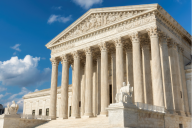You have /5 articles left.
Sign up for a free account or log in.
I’ve been consumed by news stories lately, one local—within the community of “mother bloggers” — and one national. The local, a story of a child’s death; the national, the Gulf Coast oil spill. They have little in common except the way they make me feel: impotent, enraged, worried. Impotent, because it seems there’s so little I can do to change the way things are. Enraged, because the stories both suggest miscarriages of justice. Worried, because they hit close to home: I have children, I drive a car — I’m part of these stories.
I don’t subscribe to a daily newspaper, and, while the New York Times is on my feedreader, it’s in the section marked “news,” currently at 1000+ unread. I’ll go in and “mark all read” pretty soon to reset the counter to zero, but the chance that I’ll actually work through more than a few stories is pretty slim. I do get a Sunday paper — again, the Times, despite living five states and 300+ miles away from New York, as it’s the paper of my youth (and of the best Sunday crossword puzzle). I listen to NPR. But I often find the news so overwhelming that I simply ignore it. I wish I didn’t — I wish I were better informed, more active, more involved — but my efforts at keeping on top of things so often collapse into impotence, rage, and worry that I give up easily.
The parents of children lost to addiction and violence can’t ignore the news, though, nor can the residents of the Gulf Coast. And in some way we will all be residents of the Gulf Coast soon enough, I imagine — whether toxic plumes actually reach our own shores, or we can no longer safely buy and eat seafood, or we have to give up our beach vacations — or driving — it seems clear to me now that we are all affected by this spill and have to face up to our own addictions. And, no, I’m not saying an addiction to oil is like an addiction to street drugs—or am I? Both, after all, put us at risk. Both are bad for our health. Both are “someone else’s problem”—until they aren’t. I have no desire to obscure the specificity of a parent’s loss by comparing it to a national disaster, but the fact that both news stories are about risk-taking behavior gone horribly, horribly wrong makes me wonder if we can learn something by juxtaposing them. Can our sorrow — at the loss of marine habitat, or at the waste of a child’s life — teach us anything at all?
After a death, a community mobilizes — there are memorials, stories told and memories shared. Some will seek justice, others compassion, others closure. On the edges of these stories, I seek answers: what happened, and how can we keep it from happening again? What is my part in this story? What can I do?
A child’s death simply leaves me speechless, nearly numb. But I have small answers — as many others do as well—for what to do about the oil spill: walk or carpool, take public transportation, eat local food, recycle. I do what I can — not enough, but some. It’s a start. But the questions remain.





